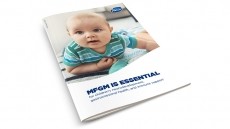Mother's diet linked to atherosclerosis risk
pregnancy, reporting a link between the calorie intake of pregnant
women and the thickness of their children's artery walls.
The thickness of artery walls is connected with susceptibility to atherosclerosis, the progressive build up of plaque that narrows the passage through which blood travels to the organ it serves and which can lead to heart attack.
While there has been much discussion of how a person's own diet can effect the build up of plaque in their arteries, the new study shows that, to some extent at least, the wheels could be put in motion even before birth.
A link between diet during gestation and offspring's arterial health had already been established in an animal model, and autopsies have shown that lipid accumulations can already be present at birth.
In order to test the effect in humans, researchers from the UK's University of Southampton measures the carotid intima-media thickness (IMT) in 216 children aged nine years, whose mothers had taken part in a nutrition study while they were pregnant.
While they found IMT was greater in boys, heavier children, and those with higher systolic blood pressure, a strong association was also seen between increased IMT and lower maternal energy intake once these factors were taken into account.
"Lower maternal energy intake during pregnancy may increase the susceptibility to atherogenesis of children," wrote the researchers in the journal Artiosclerosis, Thrombosis and vascular Biology (2006;26:1877).
They were unable to give any firm reasons for the association since further studies are needed, but they hypothesised that maternal energy might affect the foetus' blood cholesterol levels.
Pregnant women are generally encouraged to eat a healthy balanced diet and not to try to control weight gain through food restriction. However neither are they advised to 'eat for two', however, with calorie intake normally recommended to be 2,500 per day.
The link in the new study seemed to be just between calorie intake, and the source of the calories - be it protein, carbohydrate or fat - did not seem to have an effect.
A number of recent studies have indicated that intake of certain nutrients during pregnancy may impact maternal and infant health, such as omega-3 and cognitive development, calcium and vitamin D and birth weights and, as has been known for some time, folate and risk of neural tube defects.











